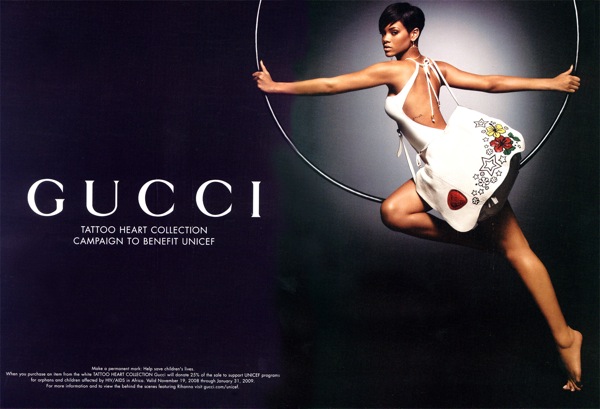
Gucci campaign to support UNICEF
Balmain leather jackets. Hermes crocodile skin Birkin bags. Gucci mink fur coats that drag down to the floor. For many years, the issue of fur and exotic animal skins had been a major challenge in the luxury and fashion industry. Animal rights groups such as PETA have continuously protested against major luxury companies during fashion weeks, as well as asking celebrities and the general public to join the campaign against fur. However, major luxury brands seems to be indifferent about the issue as their consumers continue to buy luxurious fur and leather luxury goods. It is even more unlikely that luxury brands will forget about fur when there is a rising market in China where the new middle and upper class see fur and exotic animal skins as a sign of status and wealth. In the long-run, fur would continue to appear in the fashion shows unless a law that prohibits it is passed in every country. Which this leads to another ethical dilemma on the effects it would have on the global economy.
Although the luxury industry is seen as a murderer to the environment and sustainability, many luxury groups such as PPR is actually very committed to charity work and social responsibility in the areas of combatting HIV and support for children. The larget luxury group in the world, LVMH, even have sponsorships for medical research, scientific research, fine arts, and educational programs. Despite luxury brands are rated extremely low on the issue of animal rights, their brand images are enhanced with some of their commitment to corporate social responsibility in the areas of human rights, education, arts, science, health, and the society in general.
